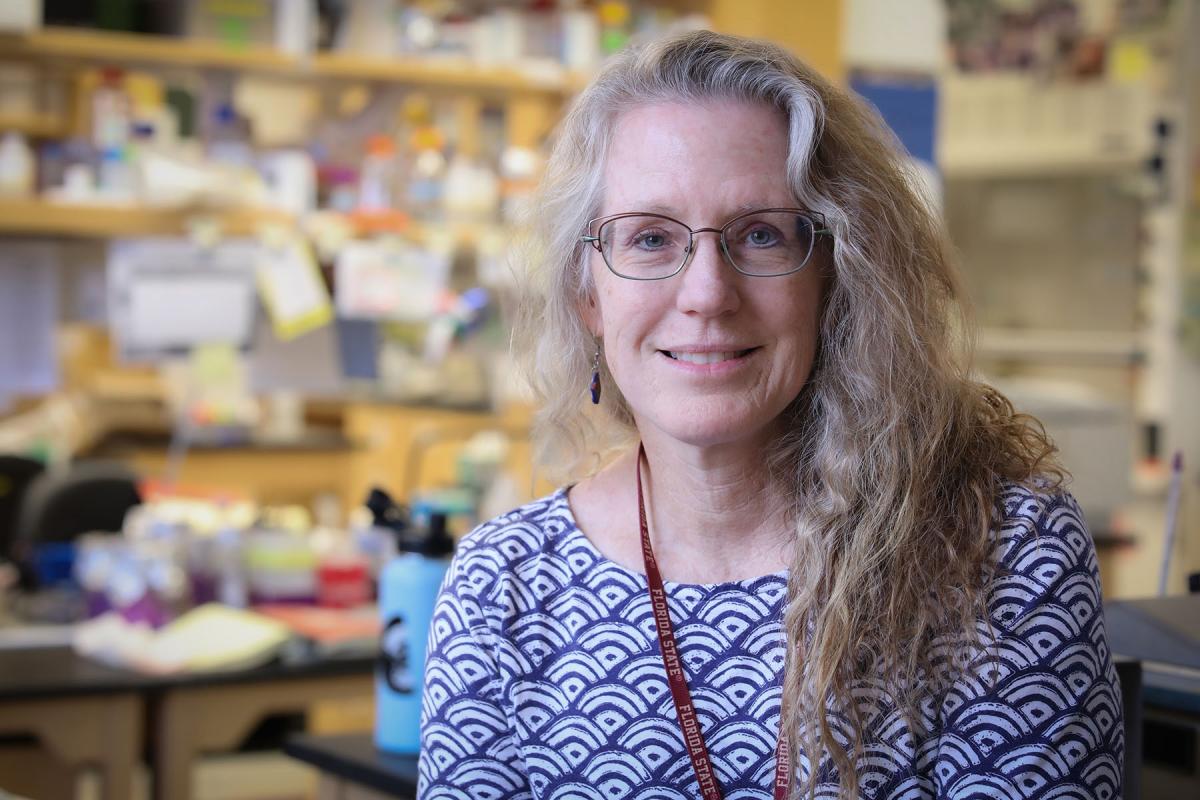FSU researcher earns $2.7 million grant to study diet, metabolism and brain connections

A Florida State University neuroscientist has received new funding to conduct research that aims to advance our understanding of how obesity and overnutrition affect the nervous system.
Debra Ann Fadool, distinguished research professor of Biological Science and Neuroscience, will use the $2.7 million grant from the National Institute of Diabetes and Digestive and Kidney Diseases to probe the links between metabolism, diet and the olfactory bulb, the part of our brain that enables our sense of smell.
“We want to know how the olfactory bulb communicates with other areas of the brain that regulate metabolism and how these connections and communications change depending on the diet consumed by an individual,” said Fadool, who holds appointments in the Department of Biological Science, the Program in Neuroscience and the Institute of Molecular Biophysics.
According to the Centers for Disease Control and Prevention, obesity affects more than 115 million adults and children in the U.S. and obesity-related health complications account for nearly $150 billion annually in health care costs. Worldwide, obesity rates have nearly tripled in the last five decades.
“Dr. Fadool’s innovative work addresses an important but understudied question regarding the association between olfaction and metabolic function,” said Lisa Eckel, director of the Program in Neuroscience. “Understanding how metabolic imbalance impacts olfactory function, which plays a critical role in regulating food intake, could lead to new, less invasive treatments for obesity and obesity-related disease.”
Using brain mapping strategies, researchers can identify which genes are activated when the olfactory bulb communicates with other areas of the brain. Fadool said the team must first map olfactory-to-brain connections in mice, then determine if the map is state-dependent, or closely aligned to the subject’s state of health.
By manipulating the nutritional content of a diet, they hope to discover the connections that exist when a subject consumes a diet lacking in beneficial nutrition and what connections are active when an individual is at a healthy body weight.
“We want to know how the olfactory bulb communicates with other areas of the brain that regulate metabolism and how these connections and communications change depending on the diet consumed by an individual.”
– Debra Fadool, distinguished research professor of Biological Science and Neuroscience
“This grant will also allow us to see how the gut and the brain communicate with one another,” Fadool said. “If we manipulate tension in the gut, or if we change the composition of the diet’s nutrition in the digestive tract, we want to then examine potential changes in the electrical activation of the brain. If the mapped information from the olfactory system is changed due to modified activity of the gut, we want to know how that could subsequently change the detection of a food’s chemical cue, which then could affect satiety, taste and so on.”
This grant will also support the work of two graduate students, a postdoctoral researcher, a lab technician and two other FSU collaborators — Linda Rinaman, professor of Psychology and Neuroscience and Hedi Mattoussi, distinguished research professor of Chemistry and Biochemistry.
Rinaman, an expert anatomist, studies how to characterize the functional multisynaptic organization of neural systems. Mattoussi’s specialty is understanding interfaces between inorganic nanocrystals and biological systems, which will assist the team in tethering chemicals to be delivered to the brain via nanoparticles.
“This type of research is really a team effort, especially because the content of your nutrition affects the health of every single one of your organ systems — the brain included,” Fadool said. “Obesity research takes a long time because of its complexity and the need to observe the effects of variables over time, so we hope our work in mouse models will help shorten the focus of what to test in clinical cases or human trials.”
Fadool is the director of the National Institutes of Health Chemosensory Grant Training Program at FSU that has been in place for over 30 years to guide and develop predoctoral and postdoctoral scientists transition to successful careers exploring the senses of smell and taste.
As one of the National Institutes of Health, the National Institute of Diabetes and Digestive and Kidney Diseases funds research developing knowledge about and treatments for diseases that are among the most chronic, costly and consequential for patients, their families and the country.
To learn more about Fadool’s research, visit dfadool.neuro.fsu.edu.
